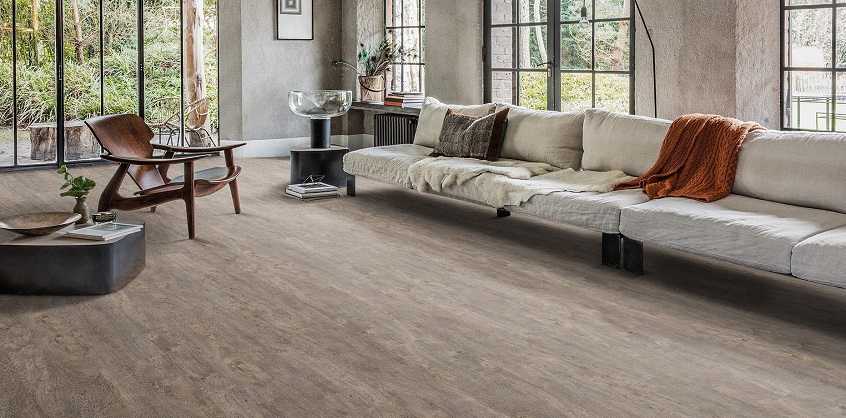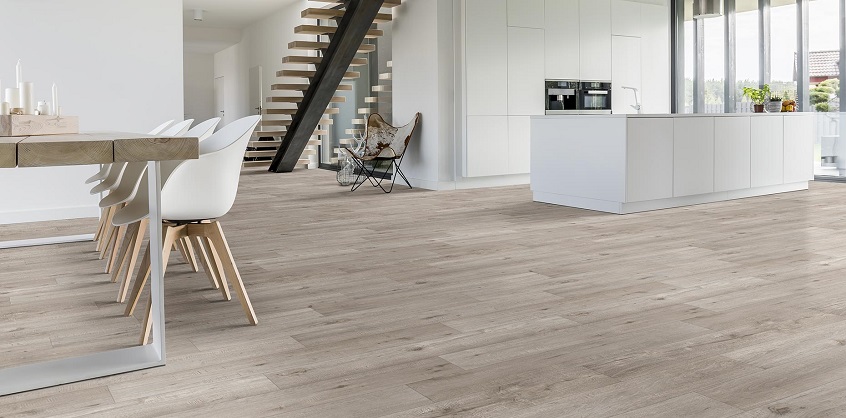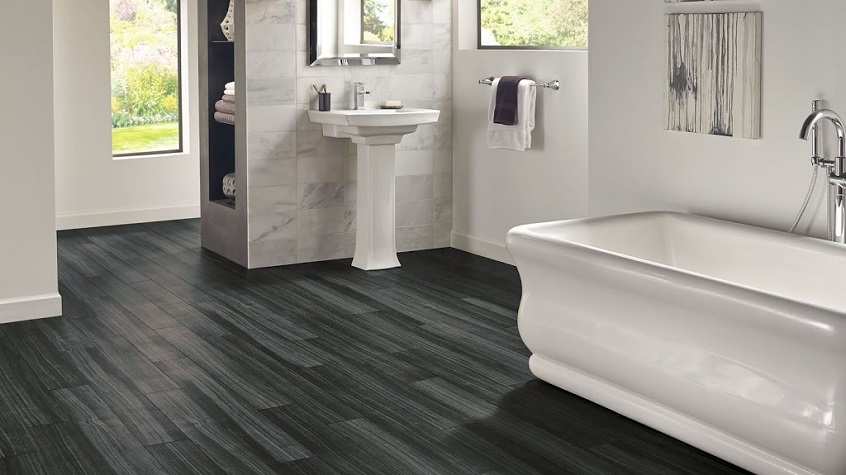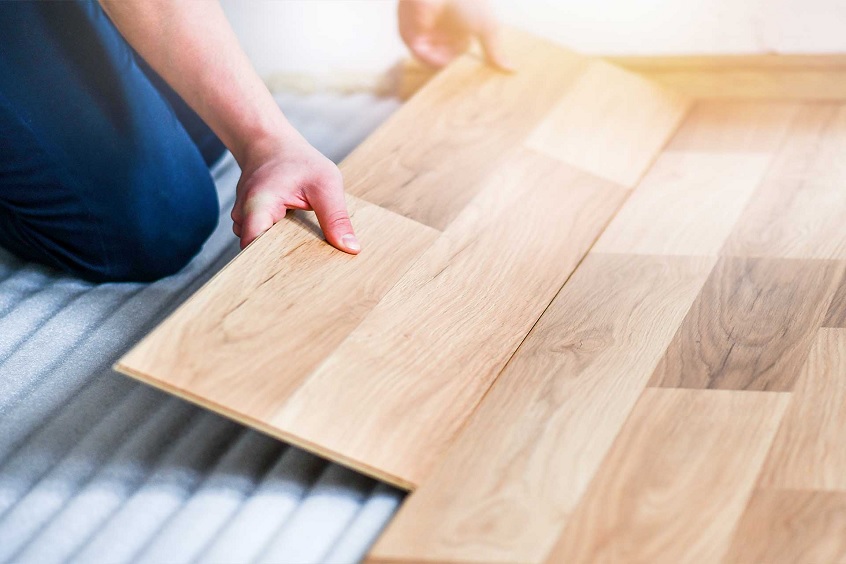
The Lowdown on Laminate and Vinyl Flooring: Major Differences, Pros and Cons
If you haven’t given it a thought by now, furniture may indeed be one of the easiest ways to improve the look of your home. Regardless of the type you choose, all furniture pieces have the power to add style, comfort and warmth to your interior. But, none of this is possible without having the right type of flooring. In fact, this warmth and comfort can only be highlighted even more when combined with the suitable flooring.
It’s an element that can really refresh the look and feel of your home instantly, adding to its style while also increasing its value, if you choose quality. So, having that in mind, you should give serious thought to the types of flooring available in the stores, and find the best solution for your home. Since vinyl and laminate are the two most popular options over the years, let’s see what their pros and cons are.
Contents
What is Vinyl Flooring?
Vinyl flooring, or also known as PVC flooring, is a popular choice for both commercial and residential spaces. It’s extremely resilient and made with advanced technology that improves its quality and longevity. Aside from this, the implementation of these new techniques and technologies is making the impossible look possible. Thanks to them, now you get the chance to install residential vinyl flooring that looks exactly the same as hardwood, stone, marble or granite.
Types of Vinyl Flooring for Home

Besides coming in different patterns and colours, you can also choose from several types of dazzling residential vinyl flooring. All of them are appealing and stylish with the main difference being in their installation process.
Vinyl Sheet Flooring
As the name implies, this type of flooring is available in sheet form. It’s extremely easy to install which makes it perfect for DIY projects. The only skill you should have is precise cutting in order to fit the space perfectly. This type of home flooring comes in various designs and colours meaning it can easily mimic wood, tiles and stones.
Vinyl Plank Flooring
When compared to vinyl sheets, vinyl plank is more successful in mimicking hardwood. This type can have the same richness, texture and look like real hardwood which is the main reason why it’s more popular than the sheet alternative. Its rigidity and strength are achieved thanks to its foam core.
Vinyl Tiles Flooring
Vinyl tiles are square tiles made of PVC that, when installed, give the appearance of stone tiles. Coming in the form of tiles, they’re mainly used in bathrooms and kitchens, and they even allow for the application of grout between the vinyl tile flooring. This will give them a realistic look that resembles ceramic tiles.
Benefits of Vinyl Flooring

Water-Resistant
Regardless of the type of vinyl flooring you plan to install in your home, all of them are water-resistant. Thanks to this, you’ll no longer have to worry about any spillage since the floor won’t swell even if you don’t wipe it immediately. Precisely this benefit makes it ideal for the installation in humid areas like the bathroom and the kitchen.
Extra Durable
If correctly installed and maintained, vinyl is highly durable and can last you at least 20 years. And even if a part of it gets damaged, it can easily be replaced in individual pieces, regardless of its type. These amazing features make it one of the most favoured types of floors of all time.
Comfortable
Vinyl flooring in general is extremely comfortable to walk on as it feels soft beneath the feet. That’s because it has a layer of padding underneath, especially the vinyl sheets and vinyl tiles. Having a softer surface also means that in the case of dropping objects, they’re less likely to break.
Little to No Maintenance
Compared to wood, vinyl is extremely easy to maintain. You can sweep it, mop it and vacuum it with ease and without the worry that you’ll damage it in any way. Because of its wear layer, it’s also resistant to stains. For those times when wanting to thoroughly clean this floor, you can mix mild floor cleaner with warm water.
Slip – Resistant
Slipping on this floor is almost impossible because it has anti-skid resistance. This feature can be quite helpful in humid spaces like the bathroom and kitchen.
What Is Laminate Flooring?
Laminate is a type of flooring that is made from materials similar to hardwood. Generally speaking, it’s made of four layers: a top layer, a printed décor coating, a fibreboard layer and a backing layer which is then coated with resin. Just like vinyl, this one is also available in numerous types that can mimic stone and natural wood. Laminate can come in planks and tiles, and it can be installed over old flooring without nails or glue.
Benefits of Laminate Flooring

Just like vinyl, laminate is also resistant to scratches. Because it has more wood elements in its core, it’s considered more eco-friendly than vinyl, however, the resin layer over it is what ruins its complete eco-friendlier image. It’s also very affordable, which is great to consider if you’re working with a tight budget.
Is Vinyl Floor Better Than Laminate?
For installing a vinyl floor you need to have a perfectly smooth surface since this is a softer material and any imperfections may lead to bulges appearing on the surface over time. However, this doesn’t make laminate flooring better since the uneven or old flooring underneath may lead to the appearance of mould or even swelling.
When comparing both of these flooring solutions, it also seems that vinyl has a longer lifespan than laminate. Given the fact that the laminate floor has a wood content, this means that it doesn’t handle water well, so you can forget about cleaning it with water on a daily basis. Additionally, laminate can be slippery when wet.

